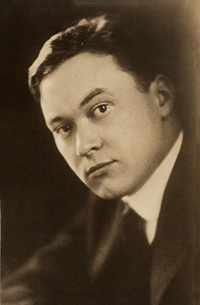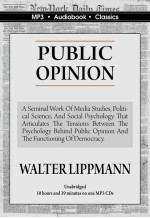Walter Lippmann
| Walter Lippmann (September 23, 1889 – December 14, 1974) was an American reporter, columnist, author and commentator who many regard as the most influential journalist of the 20th century. His contributions are many – he coined the term “stereotype” in its modern psychological meaning, was among the first to understand and name the “Cold War” following World War II, co-founded The New Republic, and authored a syndicated column “Today and Tomorrow” for many years. His best known book was Public Opinion (1922), the first major treatise in the emerging field of media studies. Born and raised in New York to an affluent German Jewish family that made annual trips to Europe, he graduated from Harvard in three years in 1910 after studying with William and George Santayana. He served in Army intelligence in World War I and afterward advised President Woodrow Wilson on his 14 Points speech, the first of his informal presidential advisory roles that continued through the Lyndon Johnson administration. Though convinced that the “bewildered herd” of the masses needed the help of a class of public affairs experts, he became increasingly skeptical that the “guiding class” was undermining the framework of democracy, concerns articulated in The Public Philosophy (1955). He won two Pulitzer Prizes, the first in 1958 for his syndicated column “Today and Tomorrow” and the second for his interview with Soviet leader Nikita Khruschev in 1961. |
Public Opinion
The 21st century has so far witnessed an exponential growth in both the volume and the complexity of..
$11.99


